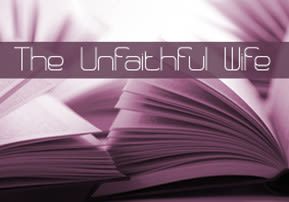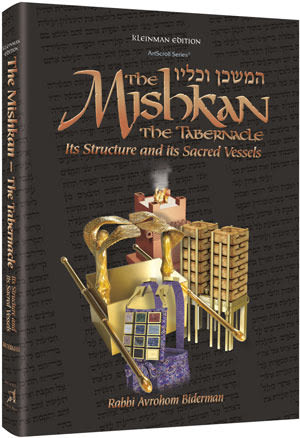
Nasso: The Unfaithful Wife
Although her husband warned her against seeing a certain man privately, witnesses nevertheless report that she had secluded herself with this particular man…

Parshat Nassa
THE UNFAITHFUL WIFE
This week's parashah tells the unfortunate story of the sota (the woman suspected of adultery). Although her husband warned her against seeing a certain man privately, witnesses nevertheless report that she had secluded herself with this particular man. It is not difficult to understand why this act aroused her husband's jealousy. However, since no one had actually witnessed her engaged in the act of adultery, the Torah provides a way of clarifying the matter. The husband brings his wife to the Kohen, together with a barley offering, which serves to clarify whether the husband’s jealousy is justified. The Kohen takes holy water from the basin of the mishkan and puts it in an earthen vessel together with some dust from the floor of the mishkan. With this water in his hand, he makes the woman swear that she accepts, that in the case a man other than her husband has lived with her, drinking this water will cause her belly to swell and her thigh to fall away. However, if she has not committed adultery, then she is free from the curse of this bitter water, and will conceive a child. “The Kohen shall write these curses in a book, and he shall blot them out with the bitter water” (Bemidbar 5:23). According to the Talmud (Sota 18a), the words the Kohen writes are the curses stated in our Torah portion (verse 19-22) which include the name of G-d. After the Kohen has read these verses from a parchment and the sota has answered “amen,” the parchment is placed in the water and the ink dissolved.
FOR THE SAKE OF PEACE
 “Great is shalom between husband and wife, as for its sake the Torah permits the name of G-d to be erased” (Chulin 141a). The holy Rabbi Meir clearly perceived the depth of this lesson. A certain woman attended his class one night. When she came home, her husband asked her, “Where have you been until now?” She answered, “I was listening to Rabbi Meir teaching.” Her husband, in his jealousy, blocked the door saying, “I will not let you in the house until you go and spit in Rabbi Meir's face.” Eliyahu the prophet revealed himself to Rabbi Meir and told him the whole story. The Rabbi then went to sit at the great Synagogue. When the woman came to pray, he made believe that he had an eye ailment. After requesting that she spit seven times in his eye in order to heal him, he told her, “Now, go home and tell your husband: You told me to spit once in Rabbi Meir's face, yet I spat seven times.”
“Great is shalom between husband and wife, as for its sake the Torah permits the name of G-d to be erased” (Chulin 141a). The holy Rabbi Meir clearly perceived the depth of this lesson. A certain woman attended his class one night. When she came home, her husband asked her, “Where have you been until now?” She answered, “I was listening to Rabbi Meir teaching.” Her husband, in his jealousy, blocked the door saying, “I will not let you in the house until you go and spit in Rabbi Meir's face.” Eliyahu the prophet revealed himself to Rabbi Meir and told him the whole story. The Rabbi then went to sit at the great Synagogue. When the woman came to pray, he made believe that he had an eye ailment. After requesting that she spit seven times in his eye in order to heal him, he told her, “Now, go home and tell your husband: You told me to spit once in Rabbi Meir's face, yet I spat seven times.” Rabbi Meir's students were astonished that he disgraced himself in this way when he could have restored peace between husband and wife in other ways. Why didn't the Rabbi just have her husband beaten up for his abusive behavior? Rabbi Meir answered that if G-d lets His Holy Name be erased for the sake of shalom bayit (peace between husband and wife), how much more so would he be willing to accept disgrace in order to restore shalom bayit. G-d, too, could have commanded that the woman be examined without erasing His name. However, G-d taught us in His Torah that it is permitted to erase the name of G-d, for the sake of peace. From this, Rabbi Meir learned not to be concerned about his honor as a Torah scholar, even in a situation where he could have used other means to restore shalom.
G-D'S NAME IS SHALOM
“Great is shalom, since all blessings that G-d brings upon Israel culminate in shalom” (Vayikra Raba 9:9). The Torah is also compared to shalom as it states, “Her ways are ways of pleasantness, and all her paths are peace” (Mishlei 3:17). Rabbi Shimon ben Chalafta said, “Great is shalom, since there is no other receptacle for the blessings, as it states, `G-d blesses his people with peace’” (Tehillim 29:11). Even the blessings of the Kohanim culminate in shalom, as it states, “G-d lifts up his countenance to you and gives you peace” (Bemidbar 6:26). This teaches us that the blessings have no value unless there is shalom (Bemidbar Raba 11:7).
Strife between husband and wife causes the Shechina to depart from Israel. Whenever there is peace between them, the Shechina is with them (Hanhagat Tzaddikim, seder alef beit). Therefore, it makes sense that the word “Shalom” is one of G-d’s names. It is actually forbidden to use this word when greeting people in the bathhouse (Mishnah Berurah 85:12). We can now understand why restoring peace between husband and wife overrides the prohibition to erase G-d's name. In place of the Divine name erased by the waters of the sota, “Shalom,” another name for G-d is revealed (Maharal, Netiv HaShalom 1).
UNIFYING THE UPPER AND THE LOWER WORLDS
Ohr HaChayim reveals that the importance of shalom derives from the secret of creation, when G-d separated the upper and lower waters. Once the upper waters became the heavens – the dwelling place for the Divine Throne – the lower waters felt left out and cried. G-d wiped their tears and appeased the lower waters with His assurance that the purpose of creating the world is to make a dwelling place for G-d below.
A woman suspected of infidelity as a result of secluding herself with another man – impairs her own shalom bayit thereby refraining from creating a dwelling place for G-d below. In this way, she causes the wailing of the lower waters to reverberate even louder. This explains why the sota is punished through water, and why this water must be taken specifically from the holy mishkan whose purpose it is to unify the upper and lower worlds. Additionally, the barley offering which she brings, recalls the sacrifice of Kain, who originally introduced jealousy and strife into the world. The lesson of the sota brings home the importance of dedicating ourselves to promoting shalom in all spheres of life. When we devote our lives to shalom we cause G-d's presence to fill the entire world equally, so that there will no longer be any division between above and below.
(Rebbetzin Chana Bracha Siegelbaum is Director of Midreshet B’erot Bat Ayin in Gush Etzion. This article is an excerpt from her book Women at the Crossroads: A Woman’s Perspective on the Weekly Torah Portion, reviewed by The Jerusalem Post, The Jewish Press, Voices Magazine, Good Reads, and WordPress/JewishPress and more. To order this book, click here)








Tell us what you think!
Thank you for your comment!
It will be published after approval by the Editor.